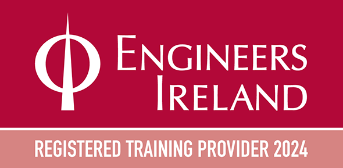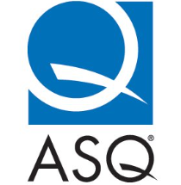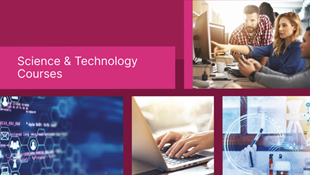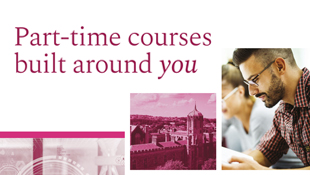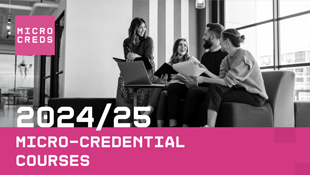-
Courses

Courses
Choosing a course is one of the most important decisions you'll ever make! View our courses and see what our students and lecturers have to say about the courses you are interested in at the links below.
-
University Life

University Life
Each year more than 4,000 choose University of Galway as their University of choice. Find out what life at University of Galway is all about here.
-
About University of Galway

About University of Galway
Since 1845, University of Galway has been sharing the highest quality teaching and research with Ireland and the world. Find out what makes our University so special – from our distinguished history to the latest news and campus developments.
-
Colleges & Schools

Colleges & Schools
University of Galway has earned international recognition as a research-led university with a commitment to top quality teaching across a range of key areas of expertise.
-
Research & Innovation

Research & Innovation
University of Galway’s vibrant research community take on some of the most pressing challenges of our times.
-
Business & Industry

Guiding Breakthrough Research at University of Galway
We explore and facilitate commercial opportunities for the research community at University of Galway, as well as facilitating industry partnership.
-
Alumni & Friends

Alumni & Friends
There are 128,000 University of Galway alumni worldwide. Stay connected to your alumni community! Join our social networks and update your details online.
-
Community Engagement

Community Engagement
At University of Galway, we believe that the best learning takes place when you apply what you learn in a real world context. That's why many of our courses include work placements or community projects.
Lean and Quality Systems (Specialist Diploma)
Course Overview
The course is intended for those who wish to focus their skills with a view to moving into specialist and hybrid lean roles, e.g. internal lean consultants, waste minimisation specialists, process optimisation advisors. It is also suitable for those who wish to upskill and specialise. On completion of the course, graduates will have highly marketable, up-to-date knowledge and skills relevant to product, process and service optimisation and improvement. Expertise in Lean and Six Sigma is currently in strong demand across all sectors.
The specialist diploma awards are particularly suitable for students requiring medium-term upskilling for career advancement or for those interested in focused study in this subject area for personal or topical interest. The specialist diplomas are linked to the degree cycle of the modular programme in Science & Technology Studies which allow students to specialise by choosing from a range of electives. These elective modules are also available as independent awards which students may take for the purposes of upskilling or retraining in the area of Automation & Control, Medical Device Science, Lean & Quality Systems and Corporate Environmental Planning.
Mode of Study: Online Learning
The Specialist Diploma in Lean & Quality Systems is approved by Engineers Ireland as a CPD learning opportunity and contributes 600 hours towards an engineer’s CPD requirement.
Students are provided with the opportunity to take the American Society for Quality (ASQ) green belt online exam to enhance their studies to a Green Belt Qualification.

This course has been approved by both Next Level Skillnet and Galway Executive Skillnet for a fees subsidy of up to 40% for students whose company is a member of their networks. For more information, contact:
Next Level Skillnet – Sue Davies at: sue@nextlevel.ie
Galway Executive Skillnet – Eamonn Molloy at: info@galwayexecutiveskillnet.com
Applications and Selections
Applications are made online via the University of Galway Applications System. This course is listed under Adult Learning Undergraduate\Postgraduate, CPD, Micro-credentials & Summer School Applications.
Please visit our How to Apply page for Application tips and Supporting Documents information.
NB: Applicants should have a Diploma at NFQ Level 7 of 90 ECTS minimum, in a Science, Engineering or Technical area, or otherwise prove that they satisfy the prerequisites of each of the modules as listed in the course outline section.
Who Teaches this Course
Requirements and Assessment
Assessment is through assignments, written examinations and in some cases practical laboratory sessions. Exams take place at the end of each semester. All modules from the course will be individually assessed.
The course is delivered online on a part-time basis. Candidates will receive learning materials in online format for each module. Materials will be specifically designed for independent study and will be supplemented by supporting reading material and interactive learning resources where appropriate. The course requires attendance online for approximately 10 hours per module, mainly on Saturdays.
Key Facts
Entry Requirements
Applicants should have a Diploma at NFQ Level 7 of 90 ECTS minimum, in a Science, Engineering or Technical area, or otherwise prove that they satisfy the prerequisites of each of the modules as listed in the course outline section.
Entry requirements for part-time students can be found here (i.e. age, english language requirements etc.).
Additional Requirements
Recognition of Prior Learning (RPL)
Duration
1-year, part-time
Next start date
September 2024
A Level Grades ()
Average intake
25-30
QQI/FET FETAC Entry Routes
Closing Date
NFQ level
8
Mode of study
Online Learning
ECTS weighting
30
Award
CAO
Course code
Course Outline
The Lean and Quality Systems (Specialist Diploma) consists of four inter-related taught modules and a project (chosen in consultation with their project supervisor), to allow individuals to up-skill in a particular area or study in a highly focused area of interest. See module descriptions below:
Lean Thinking/Lean Tools
The module provides an overview of the Toyota Production System (TPS) and the 5 Lean Principles. Learners examine the main components of the TPS system including Just-in-Time (JIT) and cellular manufacturing. The module covers the main lean tools including Value Stream Mapping, 5S, Kaizen, and Standard Work. The principles behind each of the tools and the various elements involved in effectively using these tools is discussed.
Quality Science - Six Sigma
This module introduces the concept of Quality Science. Learners will gain an understanding of the Six Sigma methodology, and gain a foundation in the statistical methods and statistical thinking that forms the basis of the Six Sigma process. Learners build on this foundation so that they have the confidence and statistical skills necessary to visualise and interpret data. Learners develop a working knowledge of the statistical package Minitab.
Problem Solving Tools & Techniques
The Problem Solving Tools and Techniques module gives learners an understanding of the tools and techniques used by organisations to implement Six Sigma projects. Learners analyse problems and learn how to target areas applicable to Six Sigma methodologies.
Enterprise Modelling & Simulation
Enterprise modelling is the process of building models of whole or part of an enterprise using process models, data models, resource models and/or new processes etc. Enterprise modelling deals with the process of understanding an enterprise and improving its performance through creation of enterprise models. It is based on knowledge about the enterprise, previous models and/or reference models.
Lean & Quality Systems Project
In this project the learner will complete a literature review on a topic that is relevant to both the course and to their own work. The learner will develop a project plan and execute a practical research project using well established research methodology methods. Students will be allocated an academic supervisor who will work with them to offer guidance and ensure the successful completion of the project. This module will enable the learner to develop their project management skills, team-working and communication skills.
Why Choose This Course?
Career Opportunities
Expertise in Lean and Six Sigma is currently in strong demand across all sectors. On completion of the course, graduates will have highly marketable, up-to-date and confidence-building knowledge and skills relevant to product, process and service optimisation and improvement. They will have practiced, and been assessed on, a range of technical and transferable skills which will be beneficial at the personal, enterprise and community levels. If graduates so wish they can progress to the BSc in Science and Technology Studies (NFQ Level 8) with credit for their studies. In this case they will be exempt from one elective stream in the Degree cycle.
Who’s Suited to This Course
The specialist diplomas are primarily intended for students who already have a Science or Engineering related diploma or degree and who wish to up-skill or become expert in one of the specialist areas as offered through these one-year diploma courses.
Learning Outcomes
Transferable Skills Employers Value
In addition to developing content knowledge this programme aims to develop useful skills, known as Professional Transferable Skills (PTS). The importance of PTS is now widely recognised in the workplace. The following nine skills are considered to be the most important in the context of this course and are particularly advantageous at management levels:
- problem-solving
- critical thinking
- decision-making
- oral communication
- written communication
- team-working
- networking
- customer-centric skills
- creativity, innovation & entrepreneurship
Work Placement
Study Abroad
Related Student Organisations
Course Fees
Fees: EU
Fees: Tuition
Fees: Student levy
Fees: Non EU
NB: EU Fees are comprised of Tuition + Student Levy.
*Next Level Skillnet and Industry 4.0 Skillnet funding are available for this course. You also may be eligible for the Adult Learning Tuition Scholarship, find out more here.
Find out More
What Our Students Say
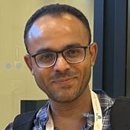
Ahmed Mohamed | Postdoctoral Researcher, University of Galway
This journey has been incredibly rewarding, and I had the opportunity to apply Lean principles in a real-world setting within the School of engineering laboratory. My project focused on improving workflow, implementing an inventory management system, and using visual management to eliminate waste, reduce costs, and enhance safety. Last week, I had the privilege of presenting my project at the Seventh International Conference on Operational Excellence in the Higher Education Sector. It was an incredible experience to share the outcomes of my study and my thoughts with fellow professionals and to represent the University of Galway - College of Science and Engineering. I’m grateful for the support and guidance from my project supervisor Dr. Olivia McDermott and the entire team at School of Engineering for their invaluable support and also not to be forgotten the entire team at the University of Galway Adult Learning & Professional Development. A big thanks to the University of Galway and its further education programme for the support in my continuous learning. Looking forward to applying these insights in future projects and continuing the journey of continuous improvement!in Connect with Ahmed
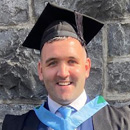
Jack Winters | Graduate
The Diploma in Lean and Quality Systems provided me with an opportunity to develop a range of valuable skills including project management, problem-solving, process improvement and lean thinking which have contributed to my development as a Design Engineer. On a practical level, I found the online delivery of the course to be very beneficial as I could learn at a time that suited me whilst still working full time. The lecturers are all very approachable and the modules were assessed on a continuous basis making it a lot more manageable. We were also offered the opportunity to obtain a Six Sigma Green Belt certification which coincided with the modules we were learning. The course highlight for me was completing a Lean & Quality Systems Project in my workplace which allowed me to execute what I had learned in each module under the guidance of an academic supervisor with a wealth of manufacturing experience. I would highly recommend this course to anyone who is not only interested in a career in this area but to those who wants to develop numerous new skills which are highly transferable.








